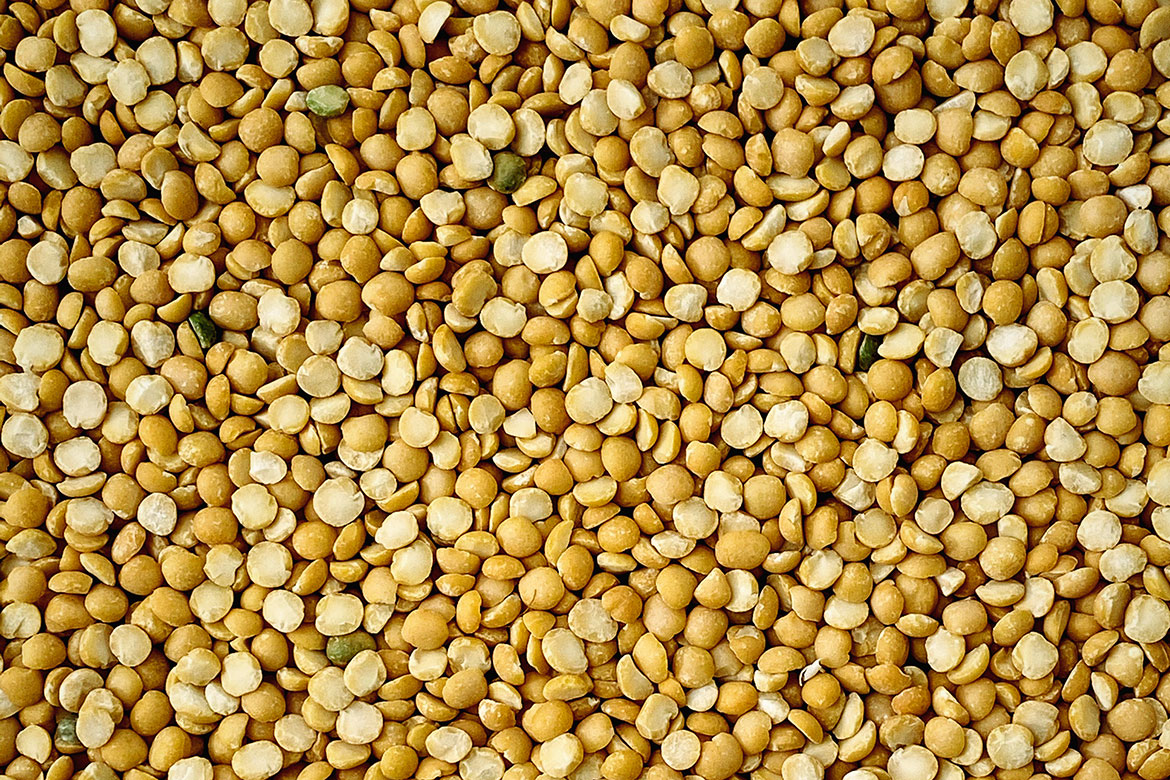Feature: A smart future for food
Editorial: Saving the world on a plate
What foodstuffs are supposedly healthy depends on the trends of the day. But if we eat sustainable, social food, we can help to save the world a little, says Horizons co-editor Judith Hochstrasser.

Yellow peas don’t need nitrogen fertilisers and are rich in protein. When combined with vitamin B12, they are ideal as a sustainable meat substitute. | Image: Florian Kalotay
Cow’s milk, gluten or simply carbohydrates – many people do without these foodstuffs today, either occasionally or completely, despite being neither lactose-intolerant, gluten-intolerant, nor overweight. Often, it’s the trends of the day that determine our ideas about what foods – or what ingredients in them – are especially good or bad for us all to eat. The egg was demonised for decades, but has meanwhile been rehabilitated. Wheat, by contrast, was long regarded as blameless – but suddenly, a lot of people find it inedible. Retail outlets today offer us food that is extraordinarily healthy – so they say – with lots of extra-special nutrients featuring illustrious ingredients such as chia seeds, ginger and blueberries. Their successful marketing campaigns convey the feeling that we are doing ourselves a favour by eating these supposed ‘super foods’. Behind all this is humankind’s age-old desire to live longer, more fulfilled lives. Healthy eating has become a new fountain of youth, though it can only drip-feed us.
But the influence of individual foodstuffs on our health is so minor that it hardly has any impact – as the nutritional physiologist Hannelore Daniel explains in our Focus on better eating. The current issue of Horizons deals not just with matters of healthy eating, but also with ‘smart food’. This concept, too, is a result of clever marketing. But there is more to it than just one’s individual wellbeing: it’s also about the wellbeing of humankind as a whole, and the survival of our planet. The production of smart food has to be sustainable and socially viable. It is the culmination of a development that has seen the ideas of the fair-trade shops of the 1990s migrate into the laboratories of our universities and the start-up companies where innovative minds flourish. Smart food might still be offering portions too small to save the world, but it can help reduce our environmental footprint, which could be decisive for the future of us all.




